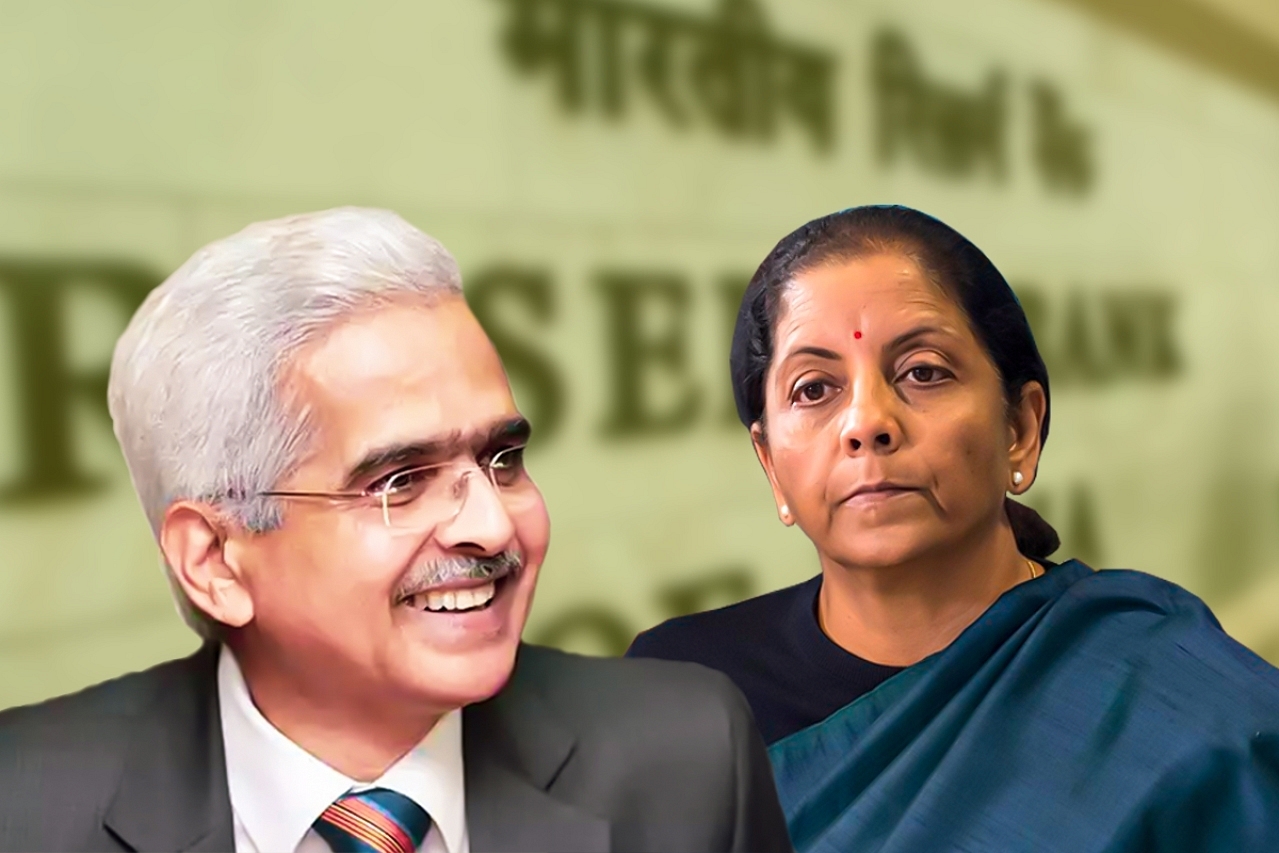Economy
SBI’s Rate Cut Is Sign That Revival Is Far Away; Covid-19 Is Making Green Shoots Look Like Cacti
- SBI has fired a warning shot: it is getting bad, and it could get worse in the coming months.
- Both the RBI and the Finance Minister should take note.

Finance Minister Nirmala Sitharaman and RBI Governor Shaktikanta Das.
If you want to know which way the economy is going or which way interest rates should move, look to the State Bank of India (SBI), not the government, the Reserve bank of India (RBI) or the Monetary Policy Committee (MPC).
Given its size and scale (over 440 million retail deposit accounts), SBI is a real proxy for the economy. It knows saver and borrower mentality like no other. So, when it cuts deposit interest rates, as it did for the second time this year, it is a signal that demand for credit is weak, and people are more inclined to save than spend. Thus, economic revival is some distance away.
Yesterday (11 March), the SBI cut savings deposit rates to the bone to 3 per cent, and long-term fixed deposit rates too. Bulk deposit rates were also chopped. This is the clearest indication yet that economic revival will have to wait at least till the second half of 2020-21. The green shoots we saw recently may turn out to be cacti, studded with thorns that can prick.
The global slowdown and collapse in commodities and bond yields has been prompted by fears that the Covid-19 scare will get worse before it gets better. For India, which till recently seemed to have been hit only lightly by the virus, the message is grim. Our numbers are rapidly escalating, with the number of infected people crossing 60 on 11 March.
But the probability is that even these numbers are grossly understated, with testing facilities still not adequately available to those who want it. If the number of undiagnosed and unquarantined people moving about is much higher than the reported numbers, our numbers will rapidly spike.
While the government has moved fast to restrict the entry of inbound travellers from abroad, including Indians, who do not carry a certificate saying they have tested negative for Covid-19. This is good, but the problem now is domestic infection rates, not just imported infection. Also, if travel itself becomes a no-no, consider the impact it will have on trade and business sentiment.
According to this Vox report, Italy reported very few cases until 23 February (76 infections), which did not seem like a crisis. But just two days later the numbers escalated to 229 as more testing facilities were made available. Also, many of the infections may have spread from health workers themselves, who appear to have contracted the disease in large numbers without knowing it.
Coming back to the SBI rate cut, the signal is that the economy is on a downward path in the coming months. It is more than likely that the Reserve Bank of India will have to follow suit and cut rates as the Covid-19 numbers start looking worse, and businesses and sectors feel the demand contraction. Barring essentials, consumer confidence may hit new lows.
The stock markets are already tanking, and the chances are consumers will postpone long-term purchases, especially purchases financed by debt. Travel will also be curtailed. This has huge implications for aviation, tourism, real estate demand, etc.
In February, the services sector PMI (purchasing managers’ index) hit a seven-year high of 57.5 per cent. But that was before the Covid-19 scare reached pandemic levels. With the World Health Organisation declaring that Covid-19 needs a much more aggressive response, more countries will take drastic action through physical lockdowns to prevent the spread of the virus. If India begins to lock down cities or certain areas of cities, there is little chance that animal spirits will revive easily.
SBI has fired a warning shot: it is getting bad, and it could get worse in the coming months. Both the RBI and the Finance Minister should take note. This is not the time for any half-baked stimulus. We need the whole works.
Support Swarajya's 50 Ground Reports Project & Sponsor A Story
Every general election Swarajya does a 50 ground reports project.
Aimed only at serious readers and those who appreciate the nuances of political undercurrents, the project provides a sense of India's electoral landscape. As you know, these reports are produced after considerable investment of travel, time and effort on the ground.
This time too we've kicked off the project in style and have covered over 30 constituencies already. If you're someone who appreciates such work and have enjoyed our coverage please consider sponsoring a ground report for just Rs 2999 to Rs 19,999 - it goes a long way in helping us produce more quality reportage.
You can also back this project by becoming a subscriber for as little as Rs 999 - so do click on this links and choose a plan that suits you and back us.
Click below to contribute.
Latest